Caffeine Is Overstimulating Your Nervous System
Most people drink coffee to wake up and feel alert, but your daily caffeine habit is doing more than just perking you up. While caffeine can temporarily increase focus, it doesn’t just "boost" your energy—it forces your body into a heightened state of alertness by activating your stress response.
Every sip of regular coffee triggers a chain reaction in your nervous system, flooding your body with stress hormones, disrupting energy balance, and leading to a cycle of artificial energy highs and lows. Over time, this can leave you feeling more stressed and fatigued—the very things you were hoping to avoid by drinking coffee in the first place.
Here’s how caffeine overstimulates your nervous system and why it might be time to rethink your morning cup:
1. Caffeine Spikes Your Stress Hormones
Caffeine triggers the release of cortisol and adrenaline, the same stress hormones your body produces during fight-or-flight situations. While this may give you a temporary boost in alertness, it keeps your body in a prolonged state of stress, leading to fatigue, burnout, and exhaustion over time.
Key takeaways:
- Caffeine increases cortisol and adrenaline levels within 30-60 minutes of intake, even in habitual coffee drinkers (Lovallo, 2004; Lane, 2002; Papadelis, 2003)
- Chronic caffeine consumption keeps stress hormones elevated, which can exacerbate anxiety, disrupt metabolic function, and increase feelings of burnout.
- Higher caffeine intake has been linked to greater perceived stress levels, making it harder for the body to recover from everyday stressors.
2. Caffeine Creates an Energy Rollercoaster That Leads to Burnout
Caffeine tricks your body into feeling awake by blocking adenosine, the neurotransmitter that signals tiredness. But once the caffeine wears off, adenosine floods back in all at once, leading to a sharp drop in energy levels—better known as the caffeine crash.
To push through the crash, most people reach for another cup of coffee, creating a cycle of temporary highs followed by deeper lows. Over time, this constant overstimulation wears out your nervous system, making it harder for your body to naturally regulate energy—leaving you feeling exhausted, overworked, and burned out.
Key takeaways:
- Caffeine blocks adenosine temporarily, but once it wears off, fatigue floods back in, making you feel even more tired.
- The more caffeine you consume, the stronger the energy crashes become, creating a cycle of dependence.
- Over time, caffeine leads to increased feelings of burnout and fatigue, instead of a sustainable energy source.
3. Caffeine Can Increase Anxiety
Research indicates a significant association between caffeine intake and heightened anxiety levels. A meta-analysis examining multiple peer-reviewed studies found that higher caffeine consumption is linked to increased anxiety symptoms (Liu, 2024). Additionally, caffeine has been shown to induce panic attacks, highlighting its potential to exacerbate anxiety-related conditions (Klevebrant, 2021).
Genetics play a crucial role in how individuals respond to caffeine, particularly concerning anxiety. Variations in the ADORA2A gene, which encodes the adenosine A2A receptor, have been linked to caffeine-induced anxiety. This genetic predisposition means that some individuals are more susceptible to the anxiogenic effects of caffeine due to their unique genetic makeup (Domschke, 2012).
Key Takeaways:
- Caffeine can exacerbate anxiety, especially in those predisposed to feeling anxious.
- Genetic variations influence one's susceptibility to caffeine-induced anxiety.
How Px Works With Your Body, Not Against It
Px coffee is for people who love coffee - but hate feeling stressed out.
Px, short for paraxanthine, is a refined energy source, naturally produced when your body metabolizes caffeine. Think of it as a smarter, calmer, kinder caffeine (read more about Px).
Px has two big advantages over caffeine:
- It's metabolized faster and doesn't linger in your system, supporting better sleep compared to caffeinated coffee.
-
It doesn't overtax the body's nervous system - the topic we'll explore here.

1. Less of a Shock to Your Nervous System
Caffeine often feels harsh because it triggers a strong stress response in the body. When you drink regular coffee, caffeine spikes cortisol and adrenaline, activating your fight-or-flight system and putting your body in a state of heightened alertness—even when you don’t need it.Px, on the other hand, doesn’t overstimulate the nervous system in the same way. Studies suggest that Px leads to lower stress hormone releasecompared to caffeine at typical daily doses. Additionally, research indicates that Px may have a reduced impact on anxiety levels compared to caffeine, making it a better option for people in high-stress jobs.
That's why 80% of people who switch to Px coffee report feeling less stressed during the day.
2. No Energy Crashes, No Afternoon Slump
One of caffeine’s hidden downsides is the adenosine rebound effect – the process where, once caffeine wears off, adenosine floods back in all at once, leading to drowsiness, brain fog, and a sudden energy crash. This often happens in the afternoon, pushing you to reach for more caffeine just to power through the rest of your day.
Px Coffee drinkers report a smoother energy curve, without the abrupt crashes that make traditional caffeine feel like a rollercoaster. While researchers are still studying the mechanisms behind Px’s steadier energy, one possible reason is that paraxanthine binds more selectively than caffeine to A1 and A2A adenosine receptors, slowing down the flood of adenosine that contributes to the caffeine crash.
The result?
- Consistent energy without the highs and lows
- No sudden crashes forcing you to reach for more caffeine
- A better rhythm for natural focus and productivity
3. Enhanced Cognitive Performance
Recent studies have shown that Px supplementation leads to significant improvements in cognitive functions such as memory, reaction time, and attention. For instance, research indicates that Px enhances mental clarity and reduces errors under stress, outperforming caffeine in post-exercise cognitive tests (Yoo, 2024).
Moreover, Px has been found to increase markers of neuroplasticity, which are essential for learning and memory. This suggests that paraxanthine not only boosts immediate cognitive performance but also supports long-term brain health (Jager, 2025).
By choosing Px Coffee, you're opting for a beverage that not only energizes but also enhances cognitive function without the common drawbacks associated with caffeine.

Paraxanthine binds to adenosine receptors in the brain differently. We believe these differences may be related to why Px has less of an effect on stress hormone spikes and avoids the caffeine crash.
Find out why thousands of coffee drinkers have already made the switch to Px coffee.
If you love coffee but hate stress, Px coffee is the smarter energy solution. It delivers the alertness and productivity benefits of caffeine — without hijacking your nervous system and elevating your stress response like caffeine.
This is the way your body, and mind, was meant to function.



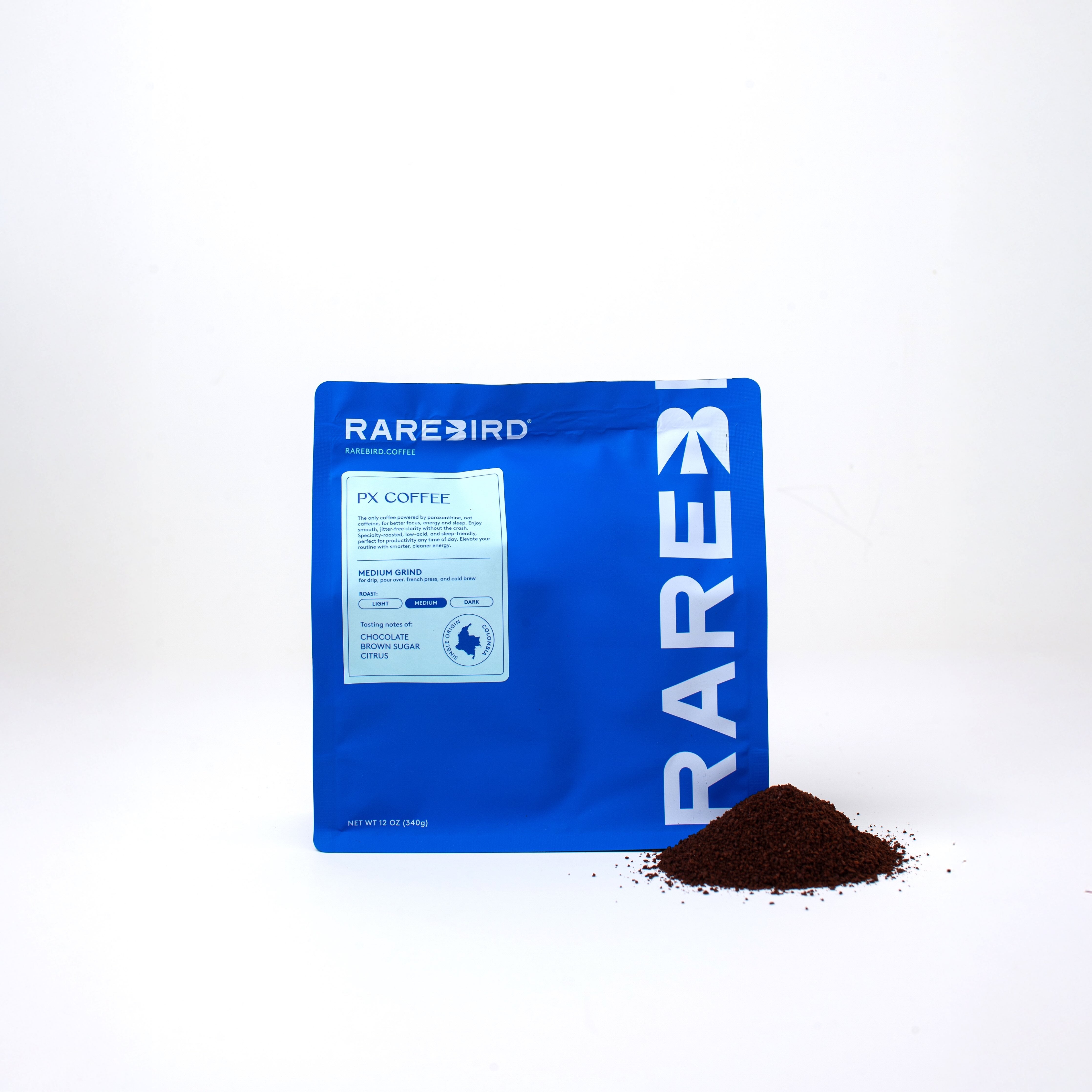
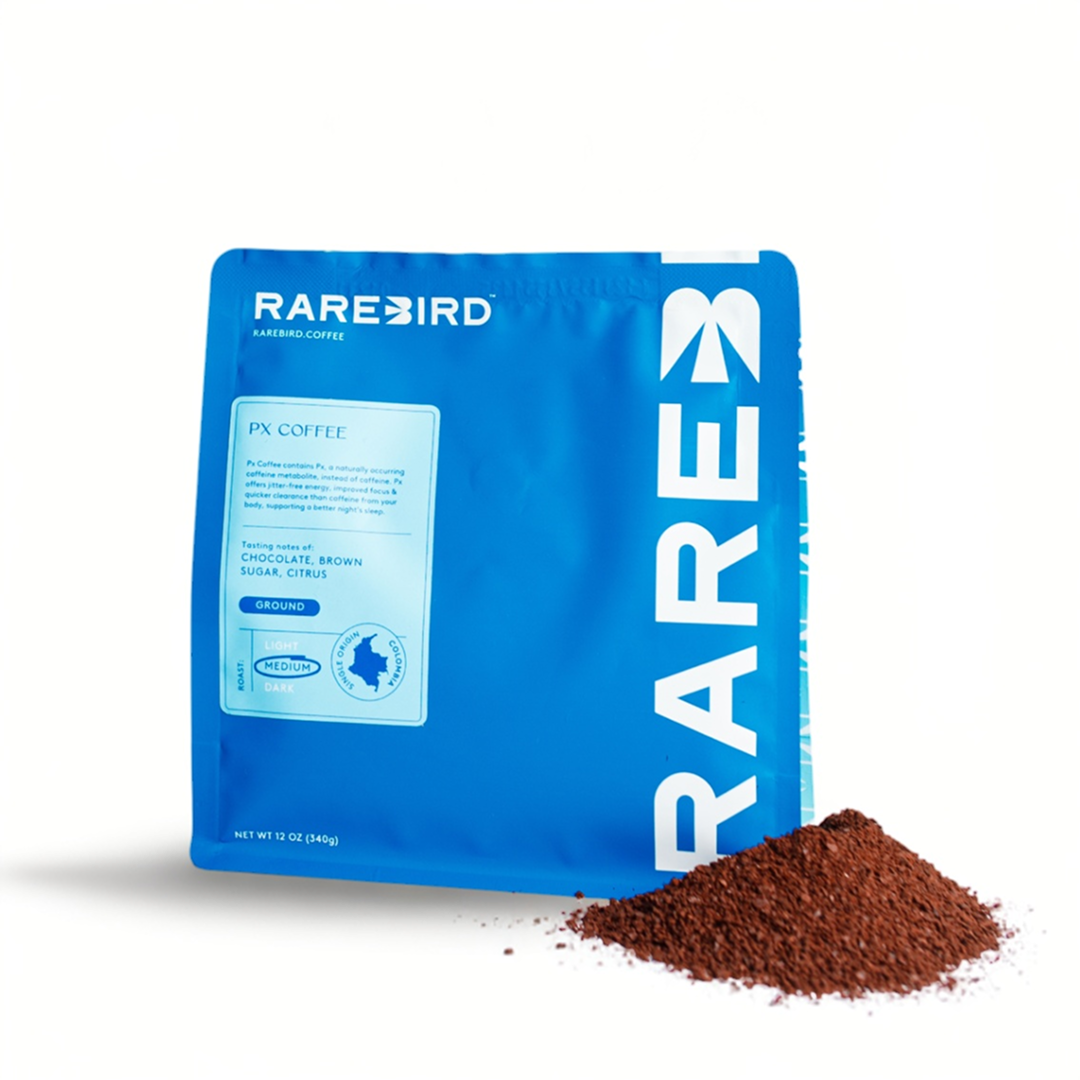

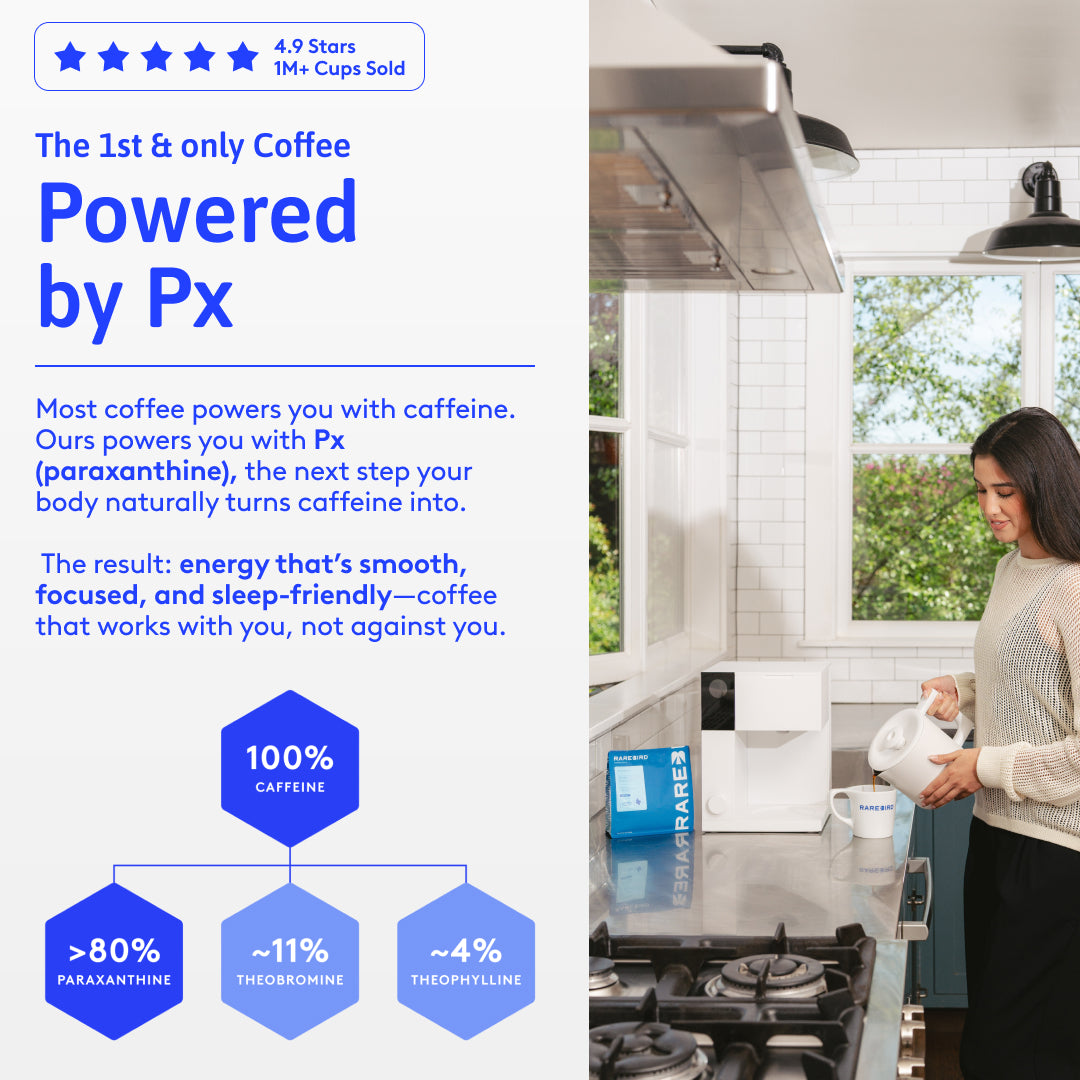
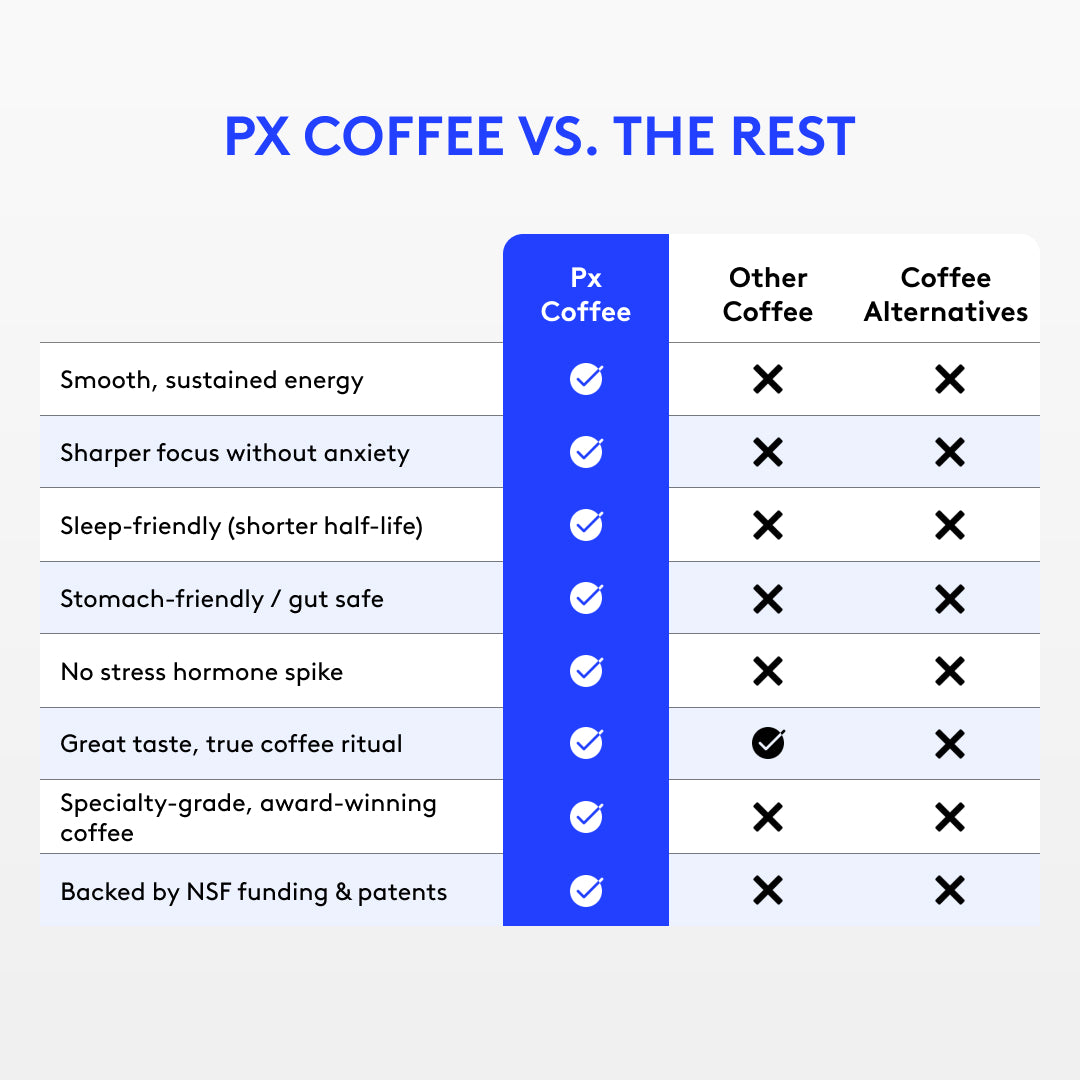
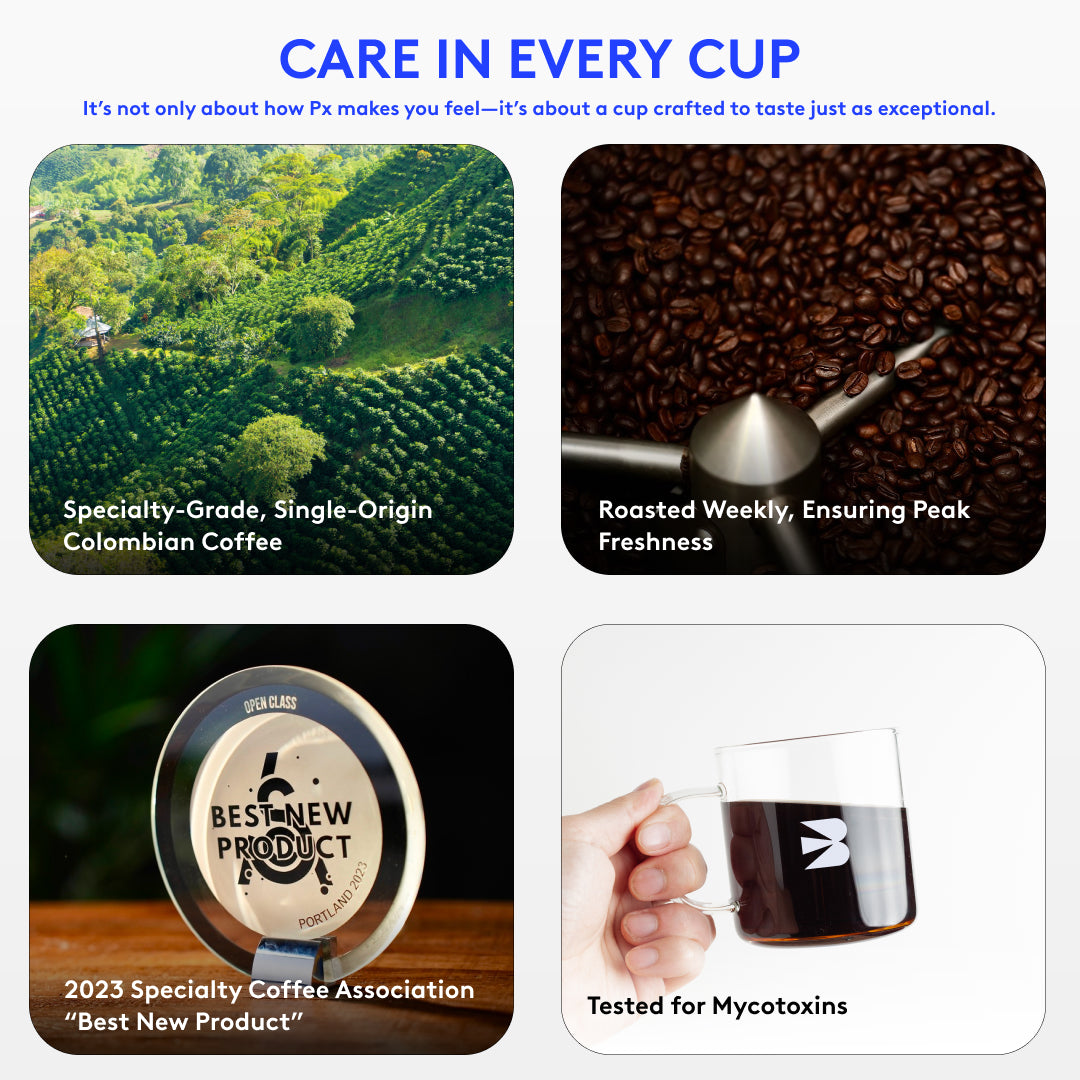
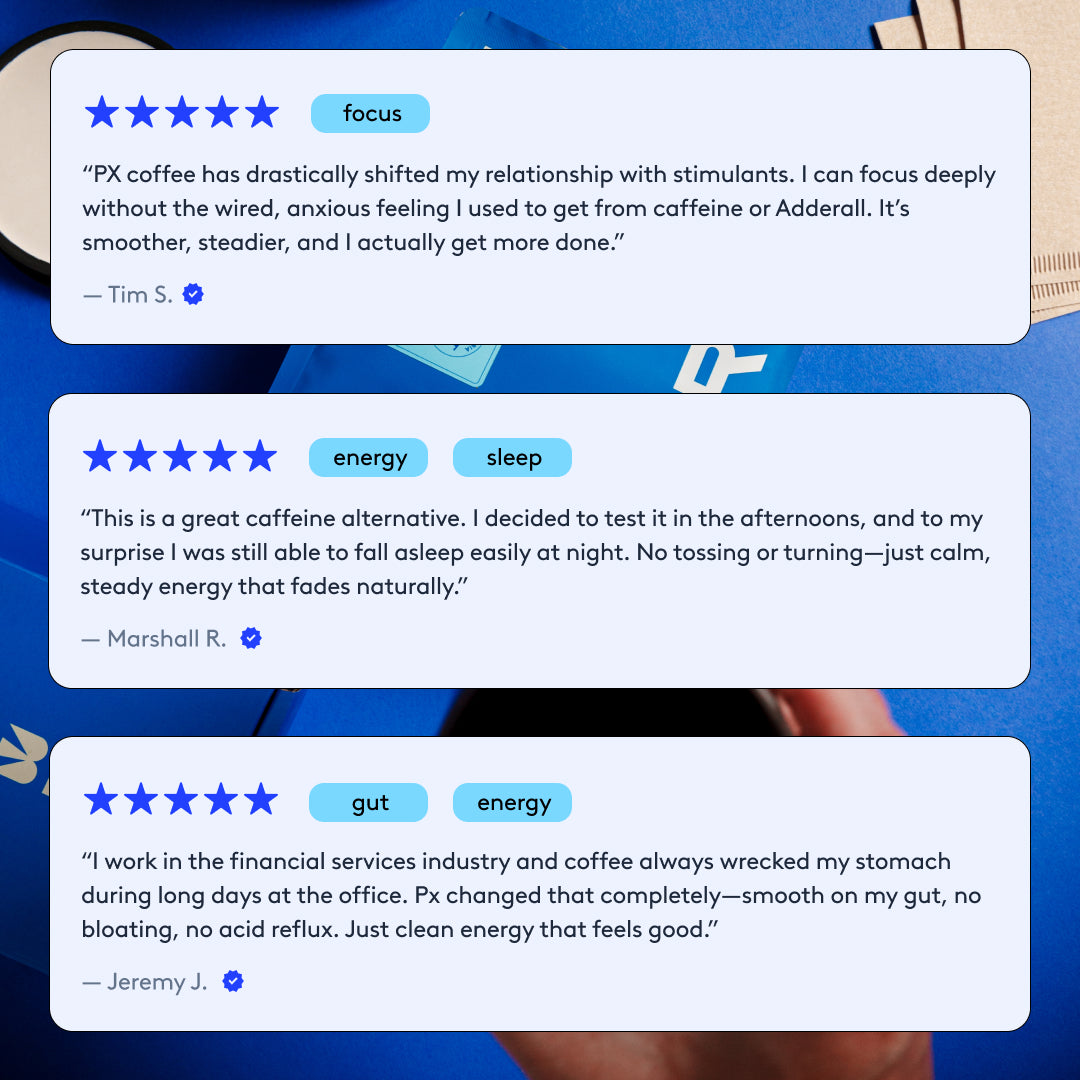


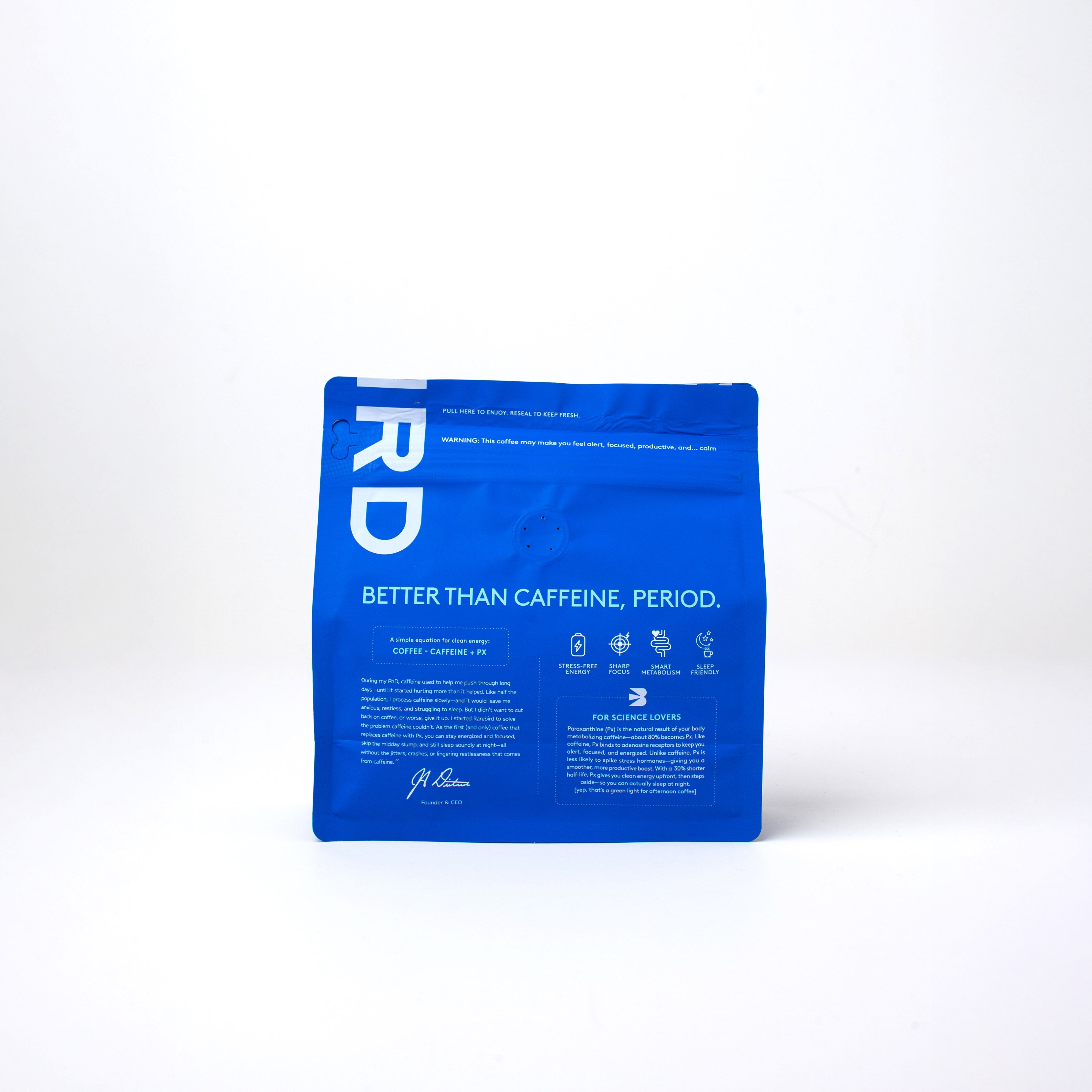
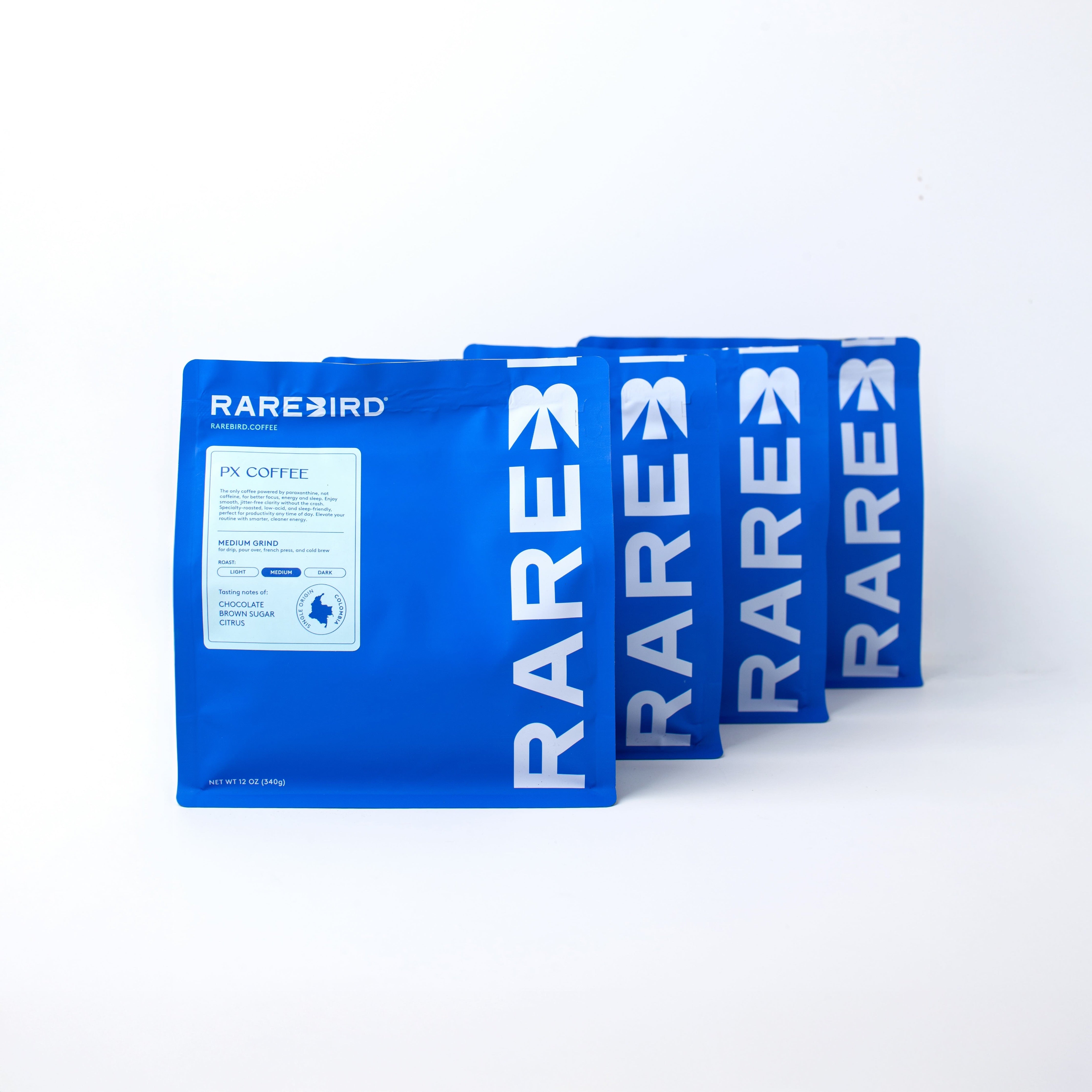
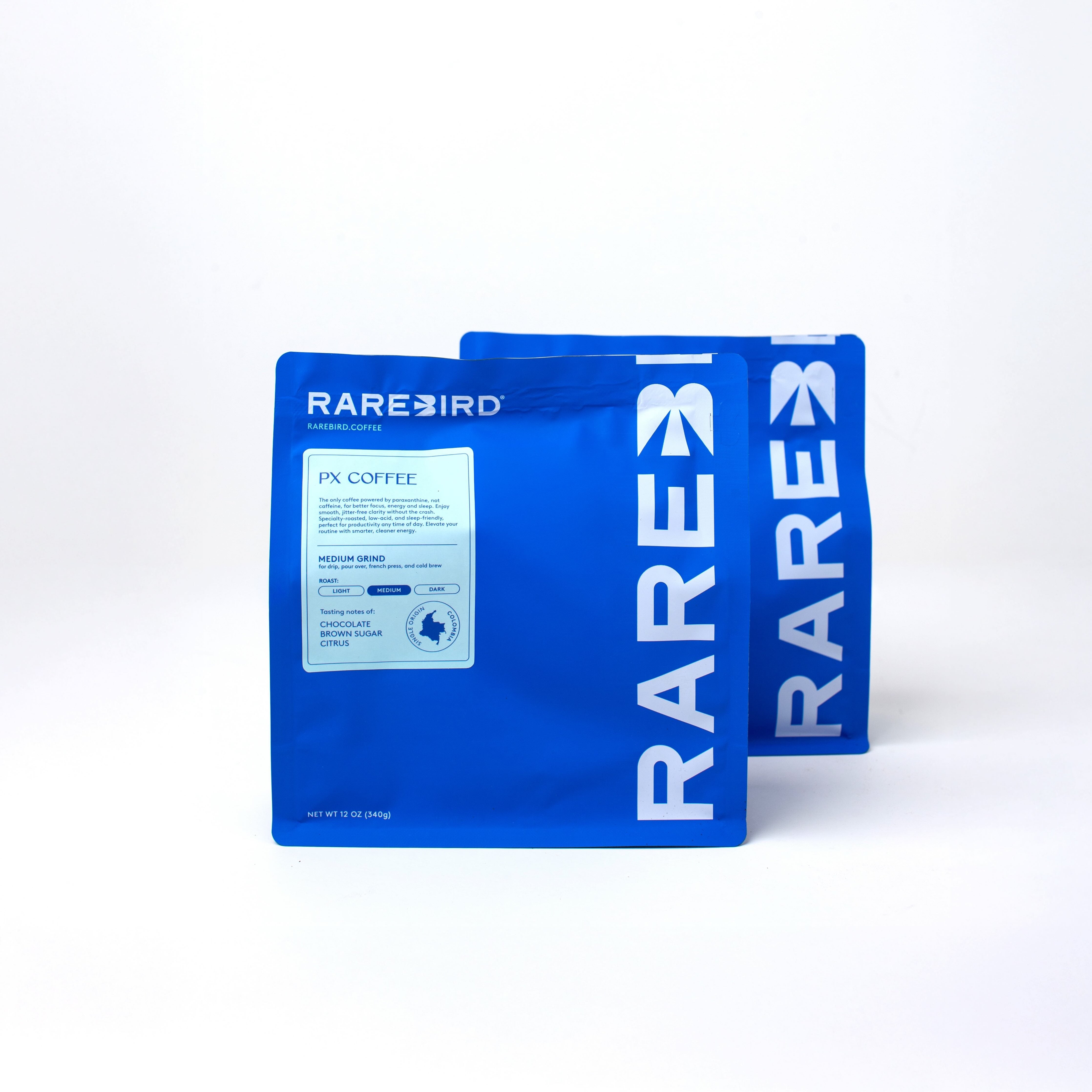
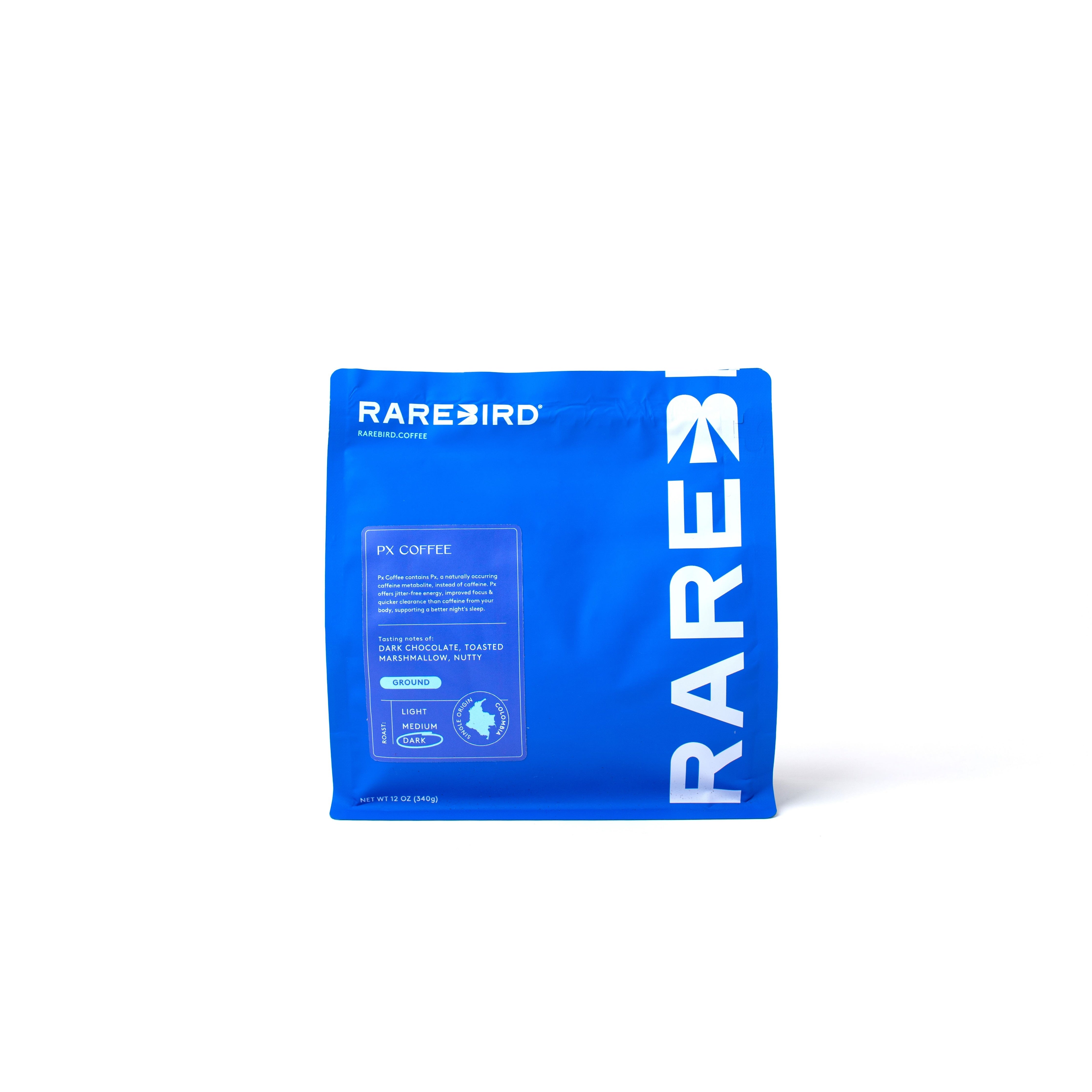
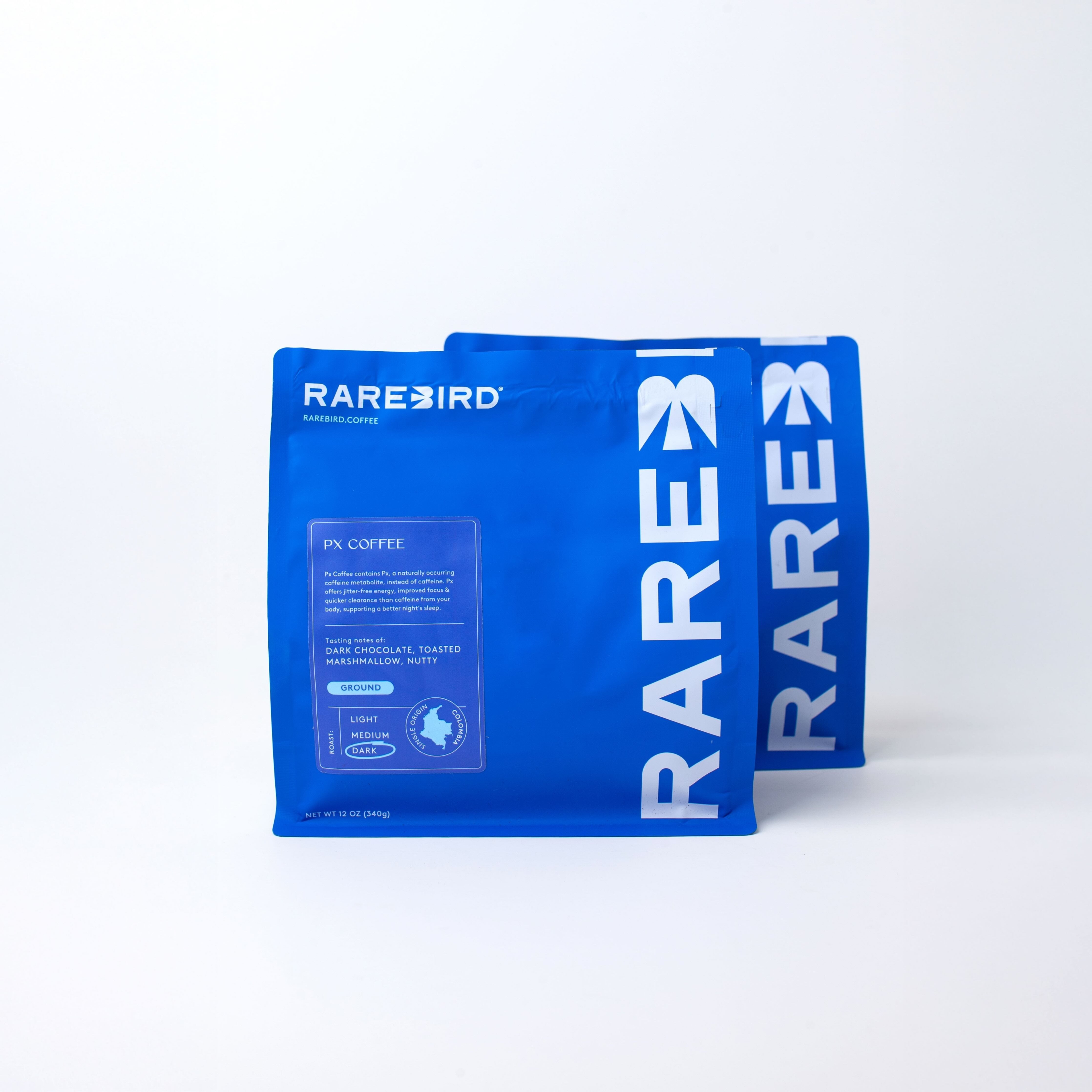


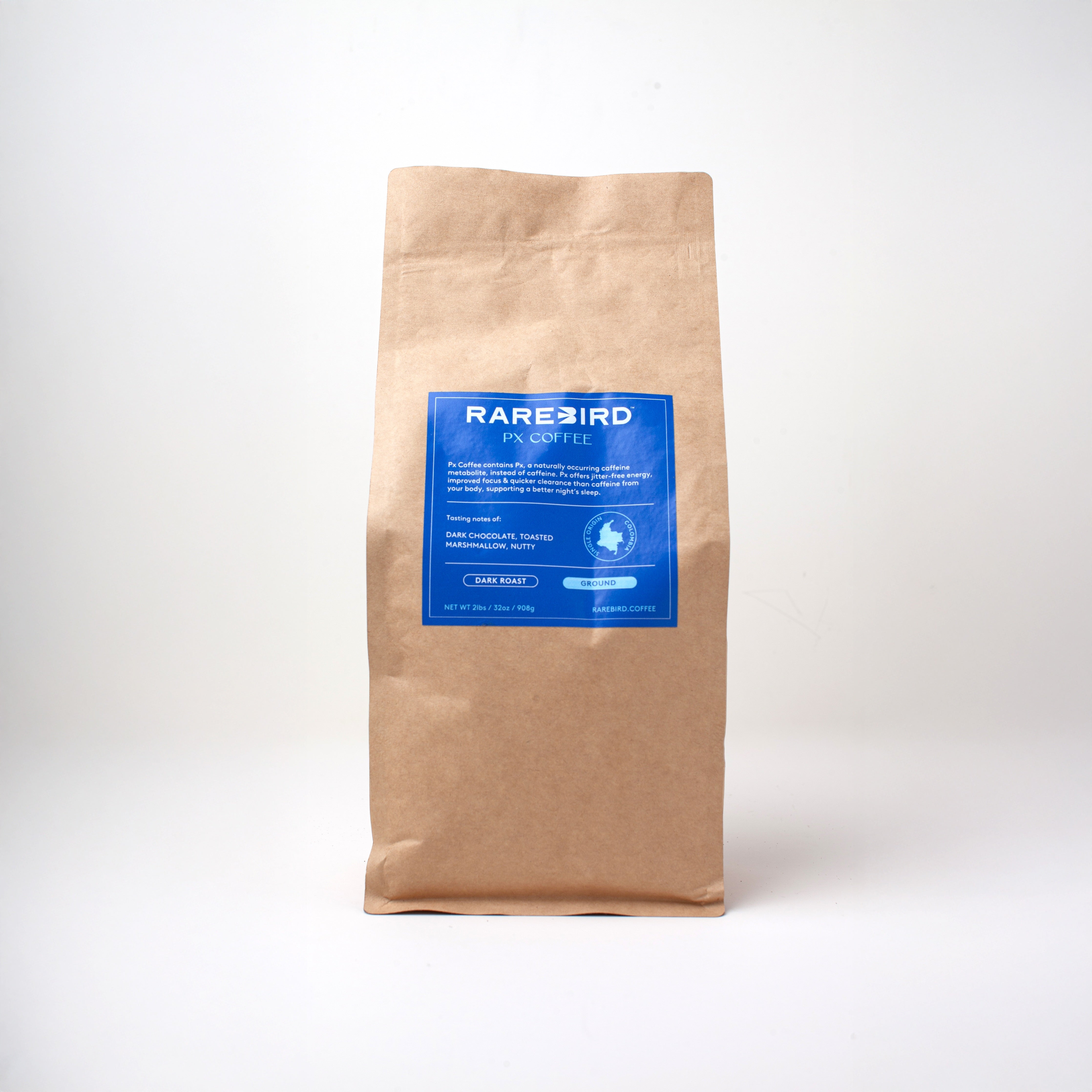
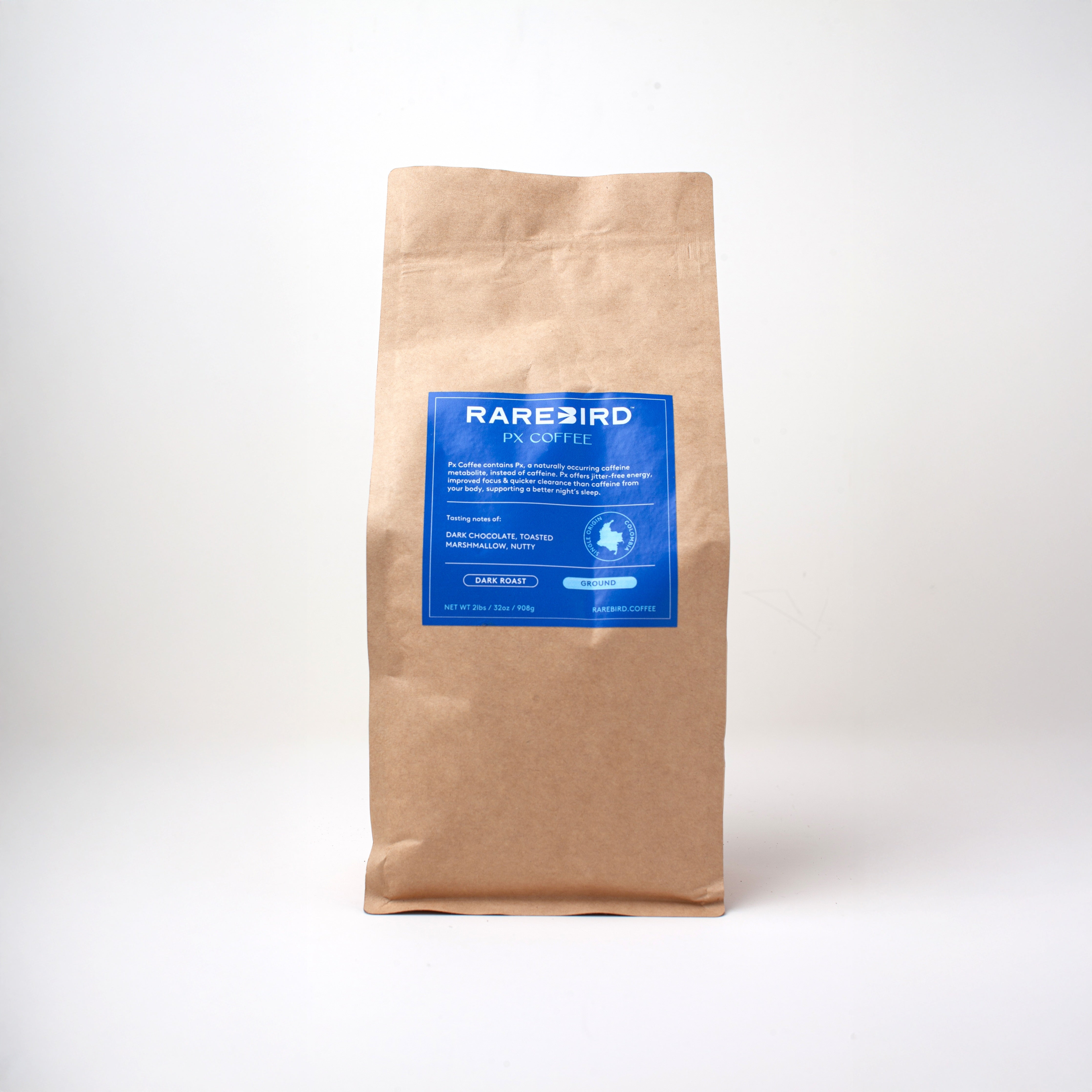
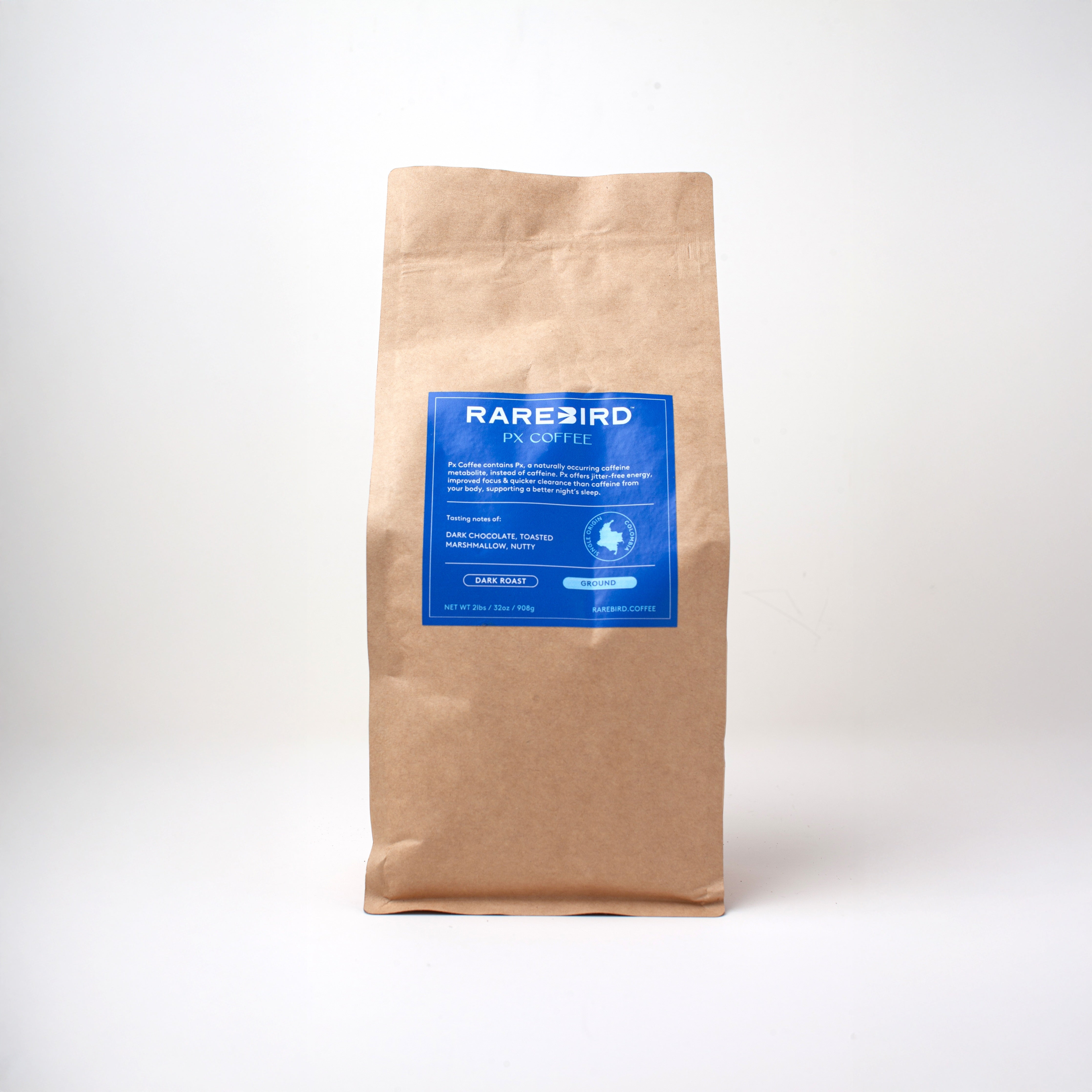
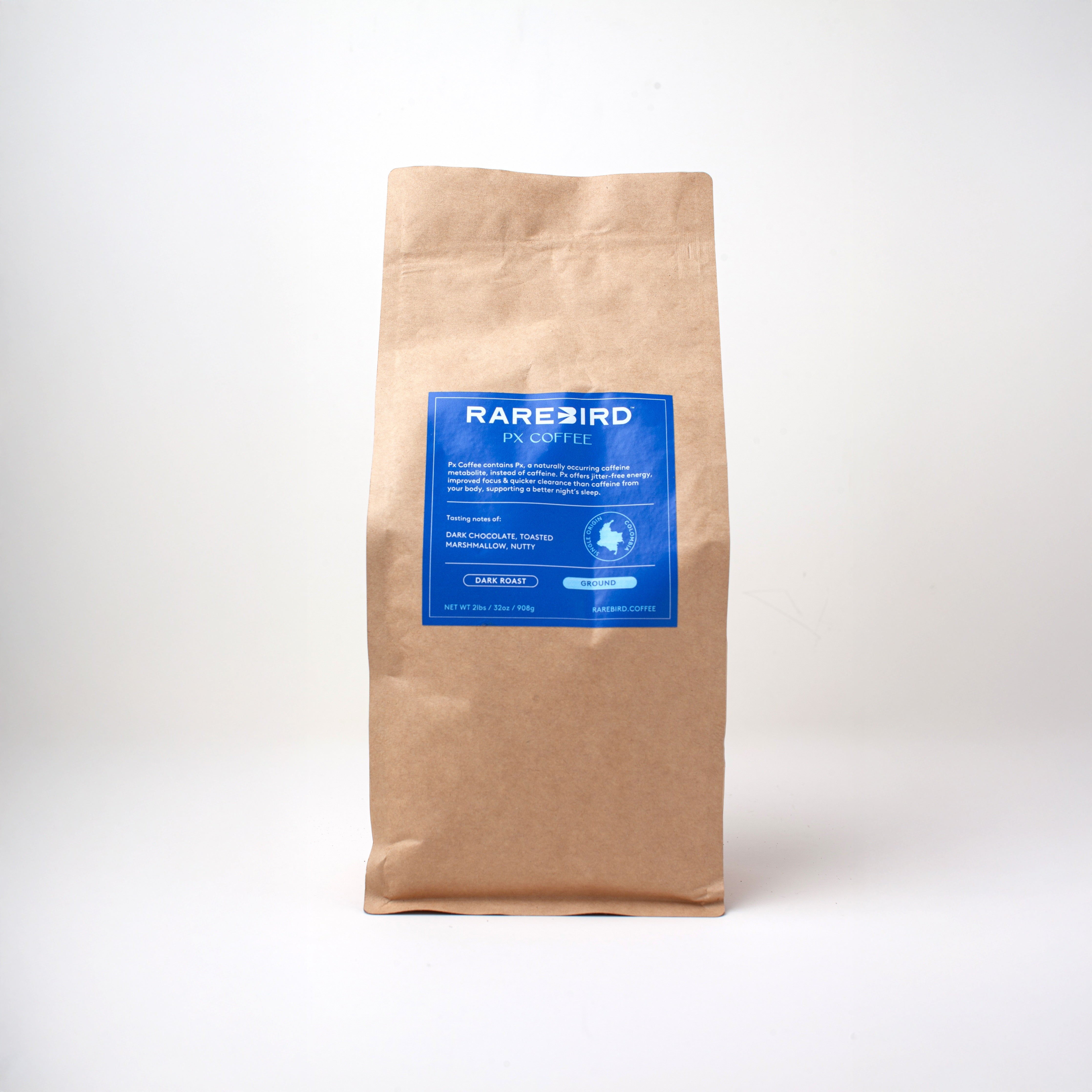





Share:
How Caffeinated Coffee Robs You Of Your Sleep, And Why Px is DIfferent
The Best Time of Day to Drink Your Daily Cup of Coffee: Science-Backed Guide